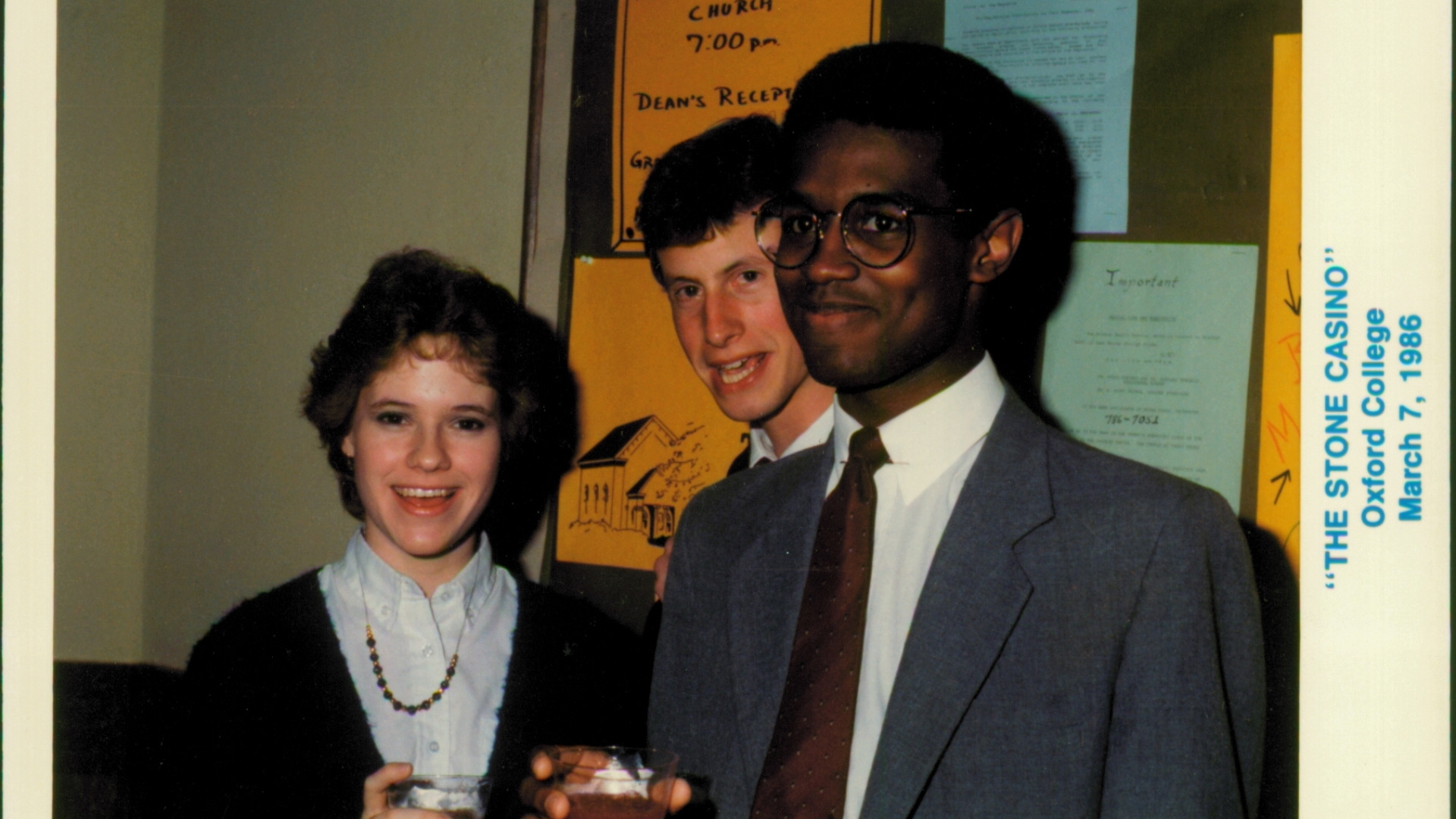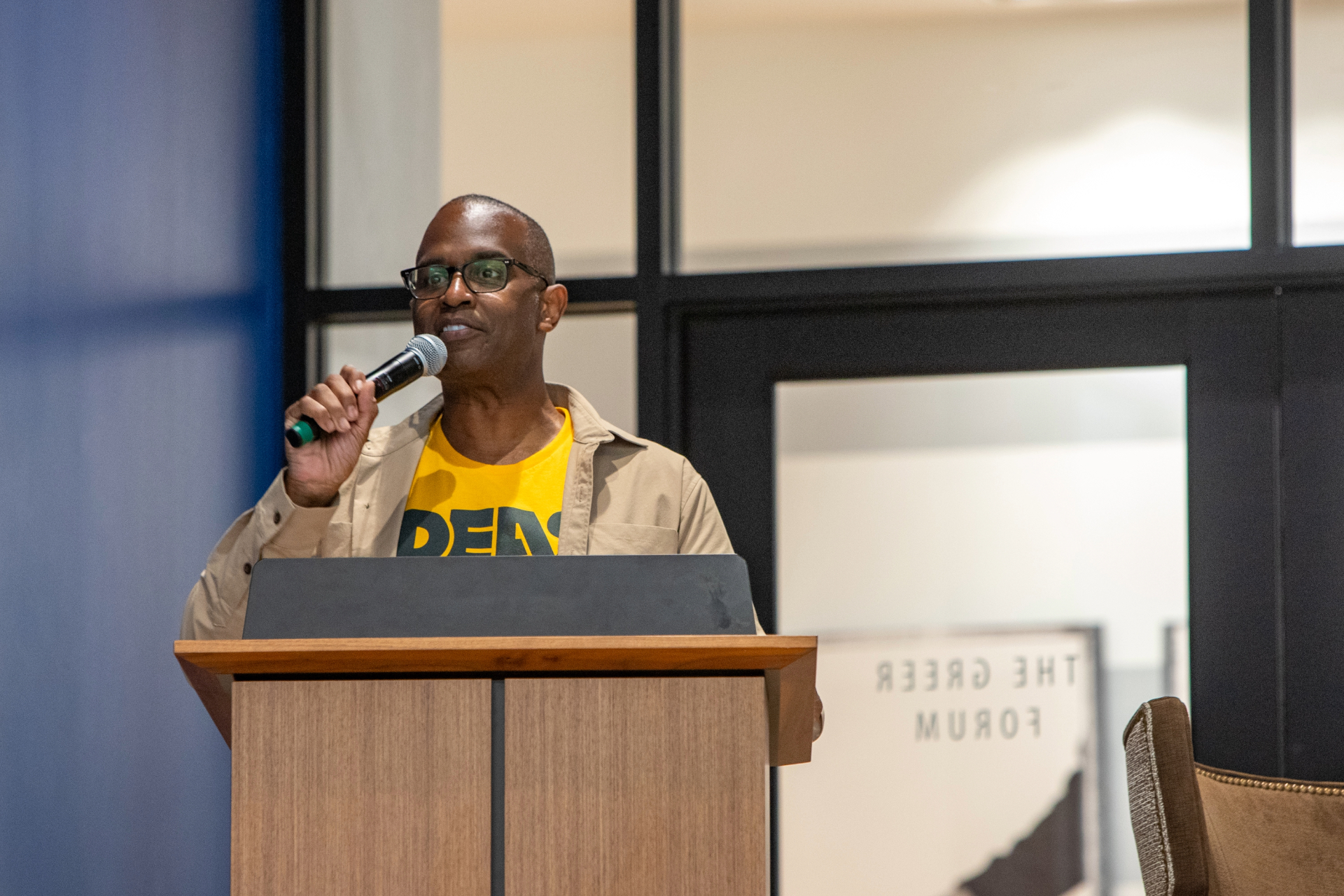OxStars: Dr. Ken Carter
Dr. Ken Carter 87Ox 89C, has made a career out of turning human curiosity into connection. Whether on campus or in the classroom, his influence and journey at Oxford College have left a lasting mark on generations of students.
As an Oxford College alum, the Charles Howard Candler Professor of Psychology, and the founder of Emory’s Center for Public Scholarship and Engagement, he has infused his passion for understanding human behavior into a mission that now touches nearly every part of campus life. Through roles that may not always make headlines, Carter has become one of Oxford’s most influential voices, creating space for bold ideas, quenching public curiosity, and bridging the gap between academia and the world beyond it.

When Carter first arrived at Oxford College more than 30 years ago, he was a first-generation college student unsure of the road ahead of him. He remembers the long drive from Columbia, South Carolina, in his white Chevy Chevette, the nervous excitement of meeting his roommate for the first time, starting classes, and settling into Bonnell Hall—now part of the JRC.
“I really didn't know what to expect, but Oxford gave me exactly what I needed.”
Nowhere is that full-circle journey more vivid than in the classroom. Despite wearing many hats on campus, Carter says it’s his deep curiosity about people that continues to draw him most to teaching psychology. “I'm really curious about how people see the world and how people see themselves,” he says. “I want to help them understand themselves and others better.”
His desire to connect and to see the world through someone else’s eyes is more than a teaching philosophy; it’s the thread that ties together every role he plays, from writing textbooks to leading initiatives that engage the broader public. Even as he writes, he partners with students to make sure the material resonates with them. “Rather than teaching to the younger version of myself, I really try to teach to who my students are today.”

After decades of nurturing ideas, igniting curiosity, and quietly shaping a more connected academic community, Carter’s impact at Oxford lives not just in programs or festivals but within the students and the people who cross paths with him each and every day.
“I think the thing that makes Oxford unique is the people, and in fact, not just the people now, but the people who have been at Oxford previously really create the experience that we have. The caring, supportive community is the thing that has transcended the 30 years that I've been here.”
Oxford has evolved over the years, and so has Carter. “I’ve been able to see Oxford change over the decades. I can see myself change as well,” he reflects. “And so, it’s nice to be able to look back and see that the core mission remains the same.”
For Carter, Oxford is more than a place of learning. “It’s been my home for 30 years.” He says. Oxford College is a community built on curiosity, open doors, and the quiet power of people like Dr. Ken Carter who choose to care.